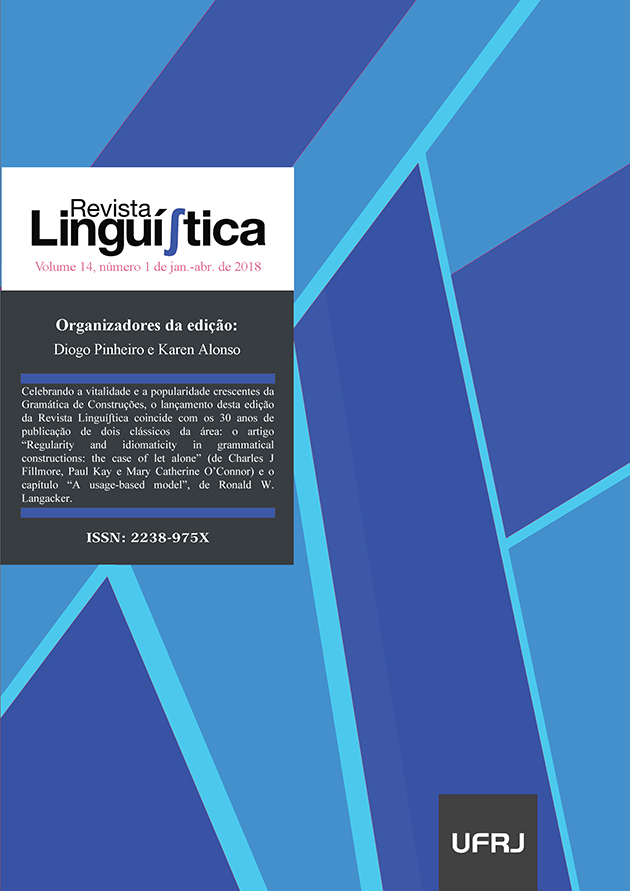The Transitive Construction in Brazilian Portuguese: cognitive-interaction aspects
DOI:
https://doi.org/10.31513/linguistica.2018.v14n1a15055Keywords:
Construction Grammar. Argument structure Constructions. Transitive Construction. Usage-based Linguistics.Abstract
This article discusses cognitive and interactional aspects related to argument structure construction subclass: the Transitive Construction. It is theoretically aligned with Usage-based Linguistics, which holds the conception that the languages are shaped by the complex interaction of cognitive and functional principles. From the analysis of empirical data, the research has concluded that the transitive construction is highly schematic and productive, in terms of types and tokens, which justifies the high number of verbs licensed by this construction, as well as it attests the proximity or distancing amongst the instances that are especially motivated by semantic properties.
---
DOI: http://dx.doi.org/10.31513/linguistica.2018.v14n1a15055
Downloads
Downloads
Published
Issue
Section
License
Authors who publish in the Revista Linguí∫tica agree with the following terms:
The authors maintain their rights, ceding to the journal the right to first publication of the article, simultaneously submitted to a Creative Commons license permitting the sharing with third-parties of published content as long as it mentions the author and its first publication in the Revista Linguí∫tica.
Authors may enter into additional agreements for the non-exclusive distribution of their published work (for example, posting in online institutional or non-profit repositories, or book chapters) so long as they acknowledge its initial publication in the Revista Linguí∫tica.

The journal Revista Linguí∫tica is published by the Post-Graduate program in Linguistics of UFRJ and employs a Creative Commons - Attribution-NonCommercial 4.0 International (CC-BY-NC).









